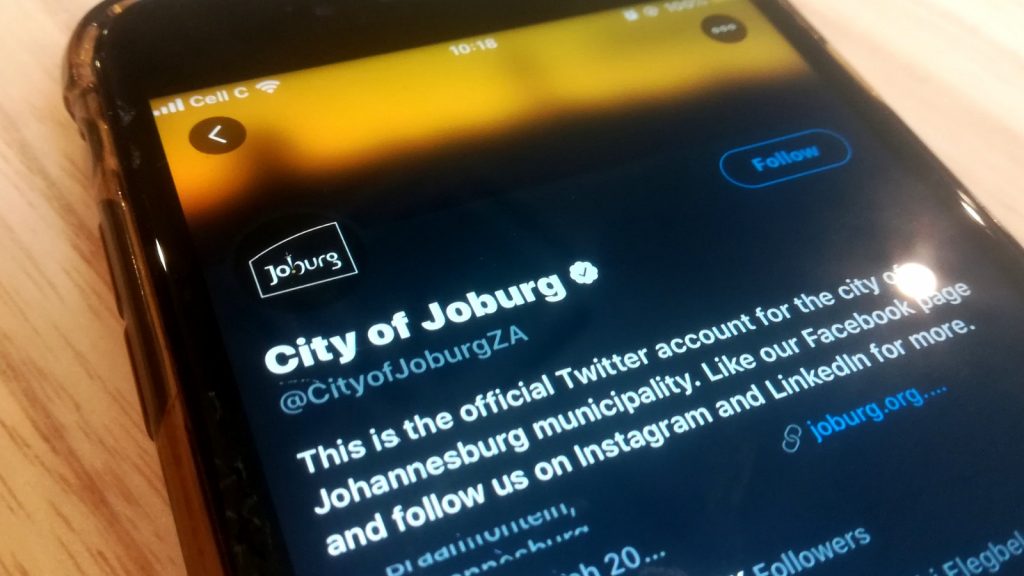South Africa’s online dating scene is shifting in 2026 as users move away from endless swiping toward niche apps focused on values, safety, and real connection.
City of Johannesburg shuts down its e-services after suffering a cyber attack

The City of Johannesburg on Thursday evening shut down its electronic services after discovering its network had been compromised by a cyber attack.
“The City of Johannesburg has detected a network breach which resulted in unauthorised access to its information systems,” the city said in a tweet.
The City has detected a network breach in its systems ^TK pic.twitter.com/r43iiJiUya
— City of Joburg (@CityofJoburgZA) October 24, 2019
According to the city, the resulting “precautionary” shut down will last 24 hours while authorities investigate the matter. This will leave customers without access to its call centres or websites.
‘We have dozens of back doors inside your city. We have control of everything in your city’
Though the City did not go on to explain the nature of the cyber attack on social media, a report by Business Day revealed that the breach involved a Bitcoin ransom note.
The publication reports that a group called “Shadow Kill Hackers” sent messages to several city employees demanding 4.0 bitcoin (about R437 000 at present) by 28 October.
“All your servers and data have been hacked. We have dozens of back doors inside your city. We have control of everything in your city. We also compromised all passwords and sensitive data such as finance and personal population information,” the message reportedly reads.
If the demands aren’t met in time, the group intends to expose all the data they have allegedly accessed.
In an update on Friday morning, however, The City of Johannesburg announced that its “critical systems are in the process of being restored”.
Meanwhile, the city’s e-services are still down at the time of writing.
This isn’t the first time a major Johannesburg-based company or utility has been hacked this year. In July, Johannesburg’s City Power was hit by a ransomware virus, which brought much of its services to a standstill.
Feature image: Shereesa Moodley/Memeburn


